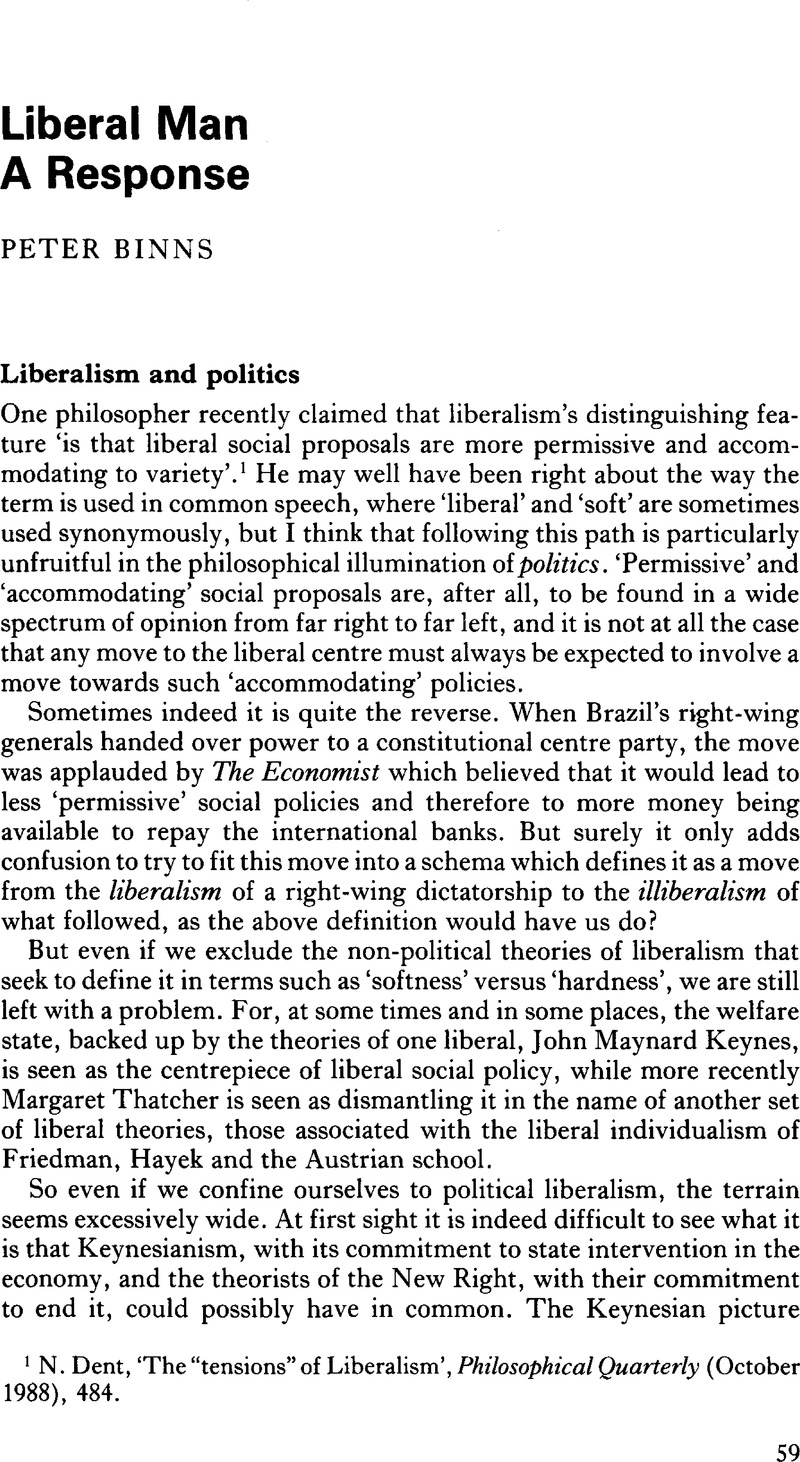No CrossRef data available.
Article contents
Abstract

- Type
- Papers
- Information
- Copyright
- Copyright © The Royal Institute of Philosophy and the contributors 1989
References
1 Dent, N., ‘The “tensions” of Liberalism’, Philosophical Quarterly (10 1988), 484.Google Scholar
2 Four Essays on Liberty (Oxford University Press, 1969).Google Scholar
3 Cirillo, R., The Economics of Vilfredo Pareto (London: Frank Cass, 1979).Google Scholar
4 Pensées (Harmondsworth: Penguin, 1976).Google Scholar
5 See above 51.
6 Later on in her paper she offers a different and more plausible account: ‘There are forms of dependence which assert our value as human beings, and there are forms of dependence which deny it. The dependence which implies that, as human beings, we have only an instrumental value is the worst form of dependence. It is this which is implied in the move from an analogy between man and the natural world to an analogy between man and the inanimate objects of the new technology.’ This seems to me to be entirely correct. But she immediately goes on to say: ‘It is the very rejection of dependency (the neediness and vulnerability of the vine tree) which brings with it the denial of humanity.’ This does not at all follow, and it immediately returns us to her original argument which, as I have argued above, is not at all convincing.
7 Sex and Repression in Savage Society (London: Kegan Paul, 1927).Google Scholar




